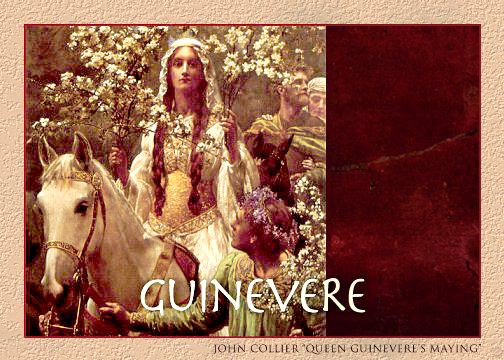
Return to Winchester Manuscript

In defining the chivalrous obligations of his knights, King Arthur
"charged them never to do outerage nothir morthir [murder], and allwayes to fle treson, and to gyff mercy unto hym that askith mercy...and allwayes to do ladyes, damesels and jantilwomen and wydowes socour: strengthe hem in hir ryghtes, and never to enforce them, uppon payne of dethe. Also, that no man take no batayles in a wrongefull quarell for no love ne for no worldis goodis."
Malory, Le Morte Darthur
To avoid treason and wrongful quarrels, to be merciful, never to show violence to women but to fight on their behalf: to this Malory adds that true love should have "trouthe and faythefulnes," be faithful and unchanging.
This passage also reveals one of the important differences between the Winchester MS and the print edition, where, intriguingly, Caxton omits the reference to widows and to protecting the rights of women and not to rape, presumably because he felt them to be so obvious as not to need mention.
The attributes of chivalry are those of a so-called "shame culture," in which individual worth is measured by personal reputation, rather than by what one's conscience declares to be right or wrong, which defines a "guilt culture." In the Arthurian world portrayed by Malory, whether a knight is honorable (worshipful) is determined by the consequences of his actions.
Malory wrote at a time of great civil unrest. For almost thirty years, the aristocracy had fought a murderous series of feuds as the houses of York and Lancaster struggled for power in the War of the Roses (1453-1485). Malory reflects this unrest, where the fellowship of the Round Table and its ideal of chivalry are destroyed by personal rivalries and blood-feuds. Indeed, his notion of knighthood was an issue of immediate interest and his idealized portrait of Arthur a tribute to Henry V.
It was while a-maying that Guinevere was abducted by Sir Meleagant. The picture above shows the same dewy wistfulness found in so many Pre-Raphaelite paintings of women. (Interestingly, the first wife of the Hon. John Collier was the daughter of Thomas Huxley, the great champion of Darwin's theory of evolution and coiner of the word "agnostic," who, in a debate with the Archbishop of Oxford, once declared that he would rather be descended from an ape than a man afraid to confront the truth.)